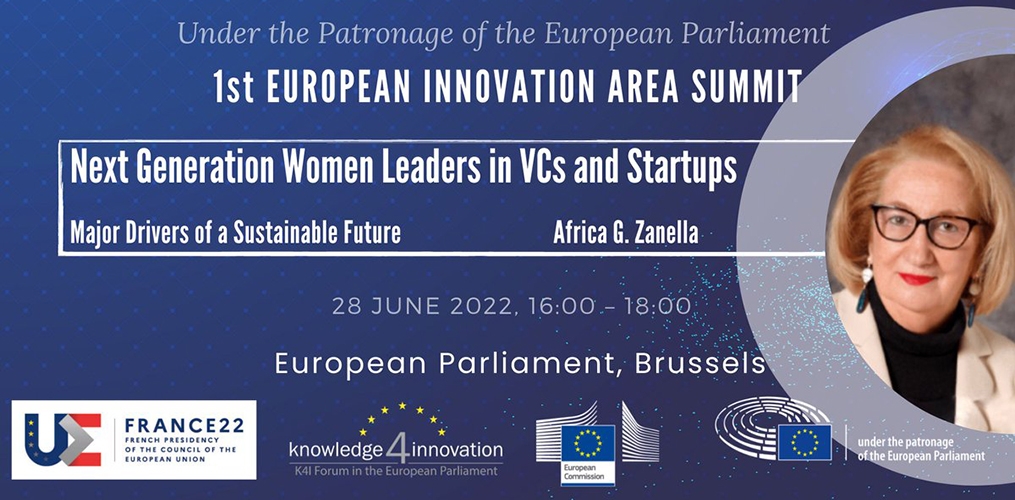
Last week, Africa Zanella, LifeWatch ERIC Gender Consultant and International Consultant and official observer at the World Bank’s Climate Investment Fund, attended the 1st European Innovation Area Summit at the European Parliament in Brussels. The Summit built on a series of EIA events from the past 18 months during which Commissioner Gabriel and many political members of the K4I Forum were actively engaged, coinciding with the unveiling of the European Commission’s New European Innovation Agenda for a European Innovation Area. Innovation is key in accelerating the green and digital economy of tomorrow, and the initiative will offer equal access to funding, where startups in one country can easily bid for public contracts in another, and allow startups and corporates to work more closely together, empowering all innovators and entrepreneurs across the continent to realise their full potential.
Representing LifeWatch ERIC, Africa Zanella spoke in the session on “Next Generation Women Leaders in VCs and Startups – Major Drivers of a Sustainable Future”, with a presentation entitled “Sustainability and Gender Balance”, in which she contended that without full involvement of women in policy design, there can be no sustainability. While sustainability is a careful balance of economic, social and environmental factors, close analysis shows that complexities and discrepancies still exist in the social system, which she pointed out needs better handling at policy, programme and community levels. She went on to explain that in order to achieve the goal of a sustainable future, gender balance be more carefully addressed in terms of leadership, access to financial mechanisms, and participation in the female labour force – making reference to the opportunites stemming from emerging industries related to the EU Green Deal and Digital and Innovation Strategies.
The key outcomes of the meeting included a reinforced support from key figures in the European parliament for boosting the number of women involved in innovation intiatives, an example being Women on Boards (which requires a 40% quota by 2025). Africa Zanella’s statement that “Without women there is no sustainability” was particularly well-received by the group, and hopefully will continue to resonate throughout the implementation of the European Innovation Agenda.
You can listen to a podcast recorded with Africa Zanella on women and sustainability here.
For relevant enquiries, please contact gender[at]lifewatch.eu.